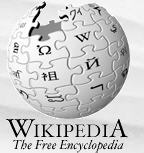Wikipedia's big problem-that no one else realizes yet


Maybe it's me, but I sense a far more complex problem with Wikipedia.
That would be problems with citations that document the text of many, if not most, Wikipedia articles.
The citations often lead to newspaper or magazine articles that when you click on them, are either expired or lead to subscriber/registration-based firewalls. Not really the publication's fault: many post articles from current issues via one type of URL, but then change the URL after that issue in which the article appears is followed by the next issue. Off the article goes to a revenue-based archive, with a different URL altogether from the one that the Wikipedia article writer used in their footnoted citation.
This problem is irritating, because in many cases, the Wikipedia article in question contains just a portion of the information contained in the source articles cited within the article, and then supposedly linked to in footnote form below the text.
I wonder whether one solution might be for Wikipedia entry writers to appraise whether or not the articles they cite are on websites where locations change frequently. If so, maybe seek rights to include the whole cited article in the main text?
Wikipedia might also do well to offer a free link check where readers of specific articles could check to see if the cited links are still working. Clicking on 12 links after an article only to find that 10 of them have gone bad isn't the best use of anyone's time.